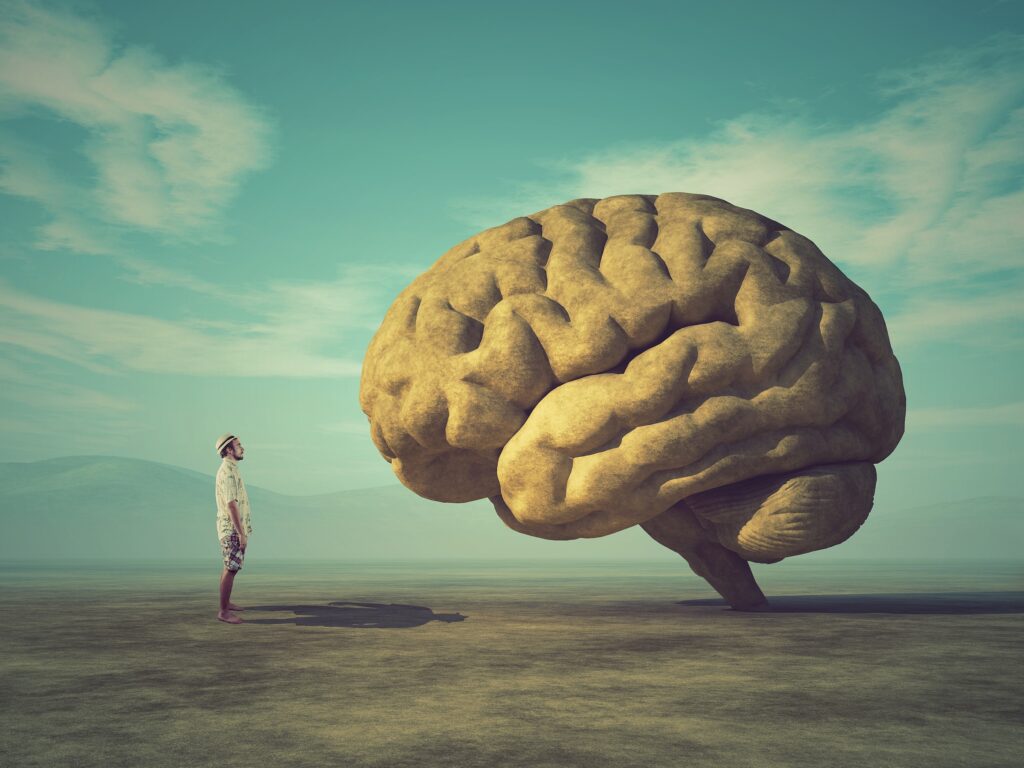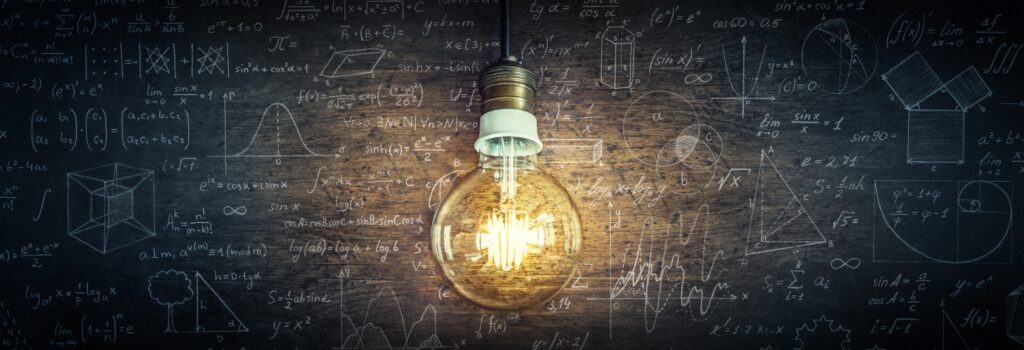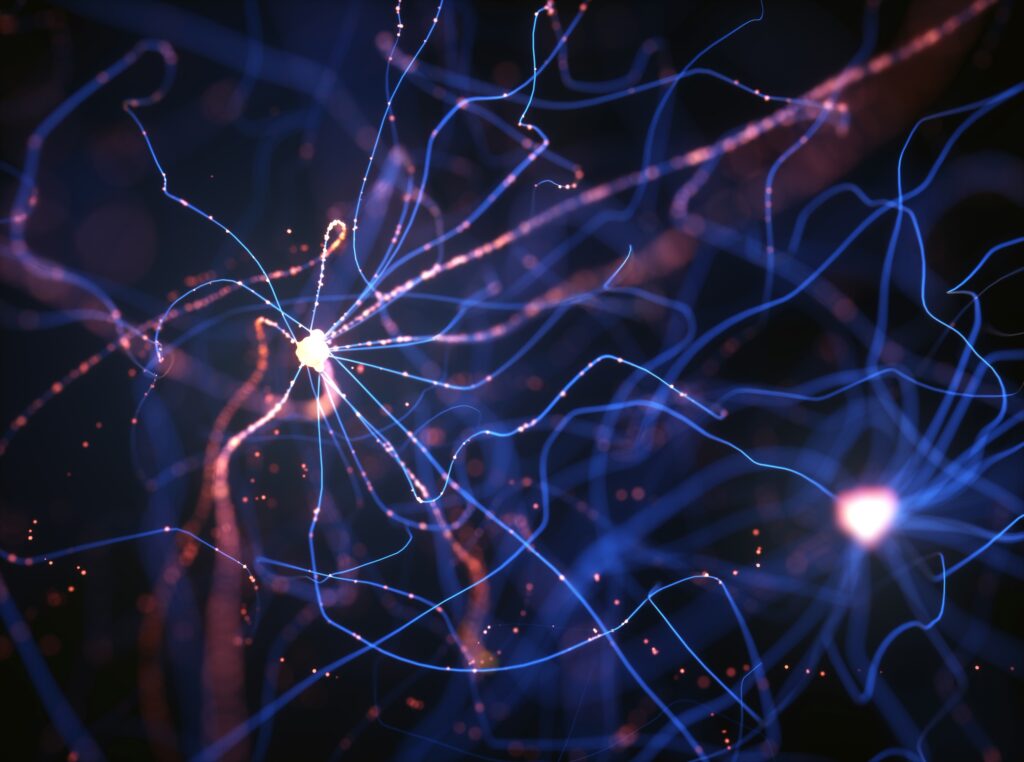The Copernican Revolution of the human mind
Reading | Systems thinking
![]() Johannes Jörg | 2021-10-31
Johannes Jörg | 2021-10-31

Conceptual reasoning might seem as central to our understanding of self and world today as the Earth once seemed central in the pre-Copernican cosmos. But just as the Copernican Revolution repositioned the Earth in the orbit of a much larger system, an on-going revolution in our understanding of ourselves will dramatically expand the boundaries of our inner cosmos, argues designer Johannes Jörg. This essay emphasizes the importance of introspection to self-understanding. And although Essentia Foundation focuses on objective avenues to knowledge—empirical evidence, logical reasoning—we welcome Jörg’s argument as a useful counterbalance to our own biases.
Introduction
From an earthly perspective the Sun apparently revolves around the Earth. The matter was obvious and the geocentric model was the prevailing doctrine in the Western world for many centuries. During the Renaissance, however, scientific methods facilitated a profound shift in perspective. The Copernican revolution removed the Earth from the center of divine creation and placed it in the orbit of a heliocentric system. The change in perspective of the Copernican revolution brought about groundbreaking shifts to the human conception of the cosmos and of humanness itself. The Copernican revolution outlines a fundamental cultural transformation away from religious paradigms and towards scientific paradigms.
For centuries it was an obvious and unquestioned fact that the Earth is the center of the universe. And in a sense, this still holds true: intuitively, our own standpoint clearly and undoubtedly is the center of our perception of the universe. There is no getting around this experiential fact and stage of conceptual development in cosmology. And jet, today, any worldview that emphasizes any specific place in the universe as its center is generally considered outdated. It took hundreds of years of conceptual and cultural evolution to overcome immediate appearances [1].
It seems to me that Western culture in the beginning of the 21st century is facing a corresponding cultural situation regarding the inner cosmos as it once did regarding the outer cosmos. Looking inside the human intellect, one is faced with a similar, stubborn bias of perspective as when looking towards the stars five centuries ago. The perspectival nature of human cognition accounts for inevitable, systemic preconceptions in the development of conceptual models. It´s only natural that the bias of immediate appearance once more is hard to see through. And at the same time, it’s a tragedy of history that a well-known historical error once more is preventing the advance of human insight.
Distortion by perspective
The paradigm shift initiated by the Copernican revolution replaced the idea of a cosmos of divine creation by something else altogether. Today’s cosmos is free from divinity, has no center at all and is almost infinitely larger than anything that’s even possible to imagine. Accordingly, the paradigm shift of the inner cosmos would not only change the conceptual understanding of ourselves, it might also remove conceptual understanding from the center of human self-assessment altogether, opening up towards something almost infinitely larger. Consciousness, mind, mental conditions, cognition, emotions, feelings, dreams, memories, intuition, empathy, moral sense, aesthetic sensitivity, pain, orgasms, spiritual experience and creativity do not revolve around thinking.
The ineluctable perspective of human self-reflection leads to the same ineluctably wrong intuitions about mind, consciousness and self as once did the earthly perspective on the universe. The intellectual self-conception of human existence intuitively starts with thinking, simply because thinking is the vantage point of self-reflecting. That is what makes conceptual understanding as convincing and central to unexamined, immediate judgement as once did the geocentric model. The persuasiveness of this bias has famously been nailed by Descartes’ “Cogito ergo sum” and has dominated Western self-conceptions ever since. In reference to the larger inner cosmos Descartes’ statement sounds like Claudius Ptolemy´s statements in reference to the outer cosmos we know today. Building on a systems understanding of the human being, the central role of thinking for human self-conception is simply a hard-wired systemic bias. Thinking is merely the vantagepoint for reflecting the inner cosmos, just like the Earth is the center for reflecting the outer universe. Basically, “I think, therefore I am” is nothing more than a self-referential tautology. Thinking is only central to itself from its own perspective. Nevertheless, the self-reference of thought is a groundbreaking and necessary step in the cultural development of human self-conception. For the understanding of what it means to be human, however, it’s an immensely limited perspective.
When we look at the night sky, we only have one selective, dynamic perspective on the solar system, the milky way and the cosmic web, which hardly tells anything about the structure of the outer cosmos. In fact, historically, at some point the cosmos was conceived as a solid dome with embedded celestial bodies. Likewise, the self-reflective perspective is just one selective, dynamic perspective within the human system, hardly telling anything about the structure of the inner cosmos. With regard to the latter, Western civilization still lives in a pre-Copernican cosmos. Today’s notion of consciousness is probably immature to the same extent as the notion of the cosmos was in pre-Copernican times.
The general public’s conception of emotions, for example, is hardly more than what is experienced from the perspective of conscious cognition. But the appearances, of course, are thoroughly shaped by the perspectival view. Brain and behavioral data provide ample evidence that emotions are ubiquitous bodily phenomena in the processing of sensory stimuli, and that conscious awareness of emotions is only the tip of an iceberg that is completely submerged most of the time [2]. A scientific consensus on a definition of emotions across disciplines is not even remotely conceivable [3]. To date, each field of research pursues its own angle on emotions. Science is far from developing and agreeing on a systemic meta-understanding of the human system and its embodied cognition, in which mutually interrelated thoughts and emotions only constitute highly interdependent, integral parts of the bigger human system.
Emotions, feelings, consciousness, mind, mental conditions, cognition, dreams, memories, intuition, empathy, moral sense, aesthetic sensitivity, spiritual experiences, creativity, conscious and unconscious thoughts are not what they appear to be from the perspective of conscious cognition. They are all part of a vast and highly complex inner cosmos whose structures, orbits and relations are yet to be mapped out systematically.
Methodical limitations of perspectives
Even though conscious thinking might seem as unique and central to a human being today as the Earth once seemed central in the pre-Copernican cosmos, conscious thinking is merely a perspective on the human system, with no central role whatsoever. Ultimately, not even thinking orbits thinking. A smug self-exaltation of reasoning is an indication of a think-o-centric inner cosmology corresponding, in accuracy, to a geocentric outer cosmology. Thinking is only central to its own perspective. And this perspective is exactly what characterizes the scientific method and the predominant approach to knowledge and insight in Western culture. Science is a third-person method, matching quantitative concepts of experience with mathematical concepts. The first-person perspective is methodically and deliberately excluded from the scientific perspective [4]. This is what gives science the power of modeling the outer cosmos, while limiting its ability to model the inner cosmos. Science has a fixed and predetermined perspective on the inner cosmos; namely, the perspective of conceptual thinking.
The turning point of the Copernican revolution was to go beyond the perspective of immediate eyesight in exploring the outer cosmos, and to arrive at new knowledge through conceptual modeling instead. Similarly, in order to significantly advance one’s apprehension of the inner cosmos, one must go beyond the perspective of conceptual thinking. Insisting on scientific reasoning as the only valid method for exploring the inner cosmos is akin to sticking to eyesight alone, so to speak. The models for an appropriate description, and the observational technics for an undistorted study, of the inner cosmos are yet to be developed. Either a meta-conception of conceptual thinking would be necessary—which would put in perspective the very perspective of conception, thus enabling a comprehensive understanding of the scope of conceptual thinking [5]—or one would have to take an inner ‘first-person spaceship’ to move beyond conceptual thinking and gain genuine insight on the inner cosmos.
Recalibrating the inner cosmos
Introspective first-person methods of inquiry are intended to provide such inner spaceships. They aim to impart immediate experiences of changes in perspective on the inner cosmos. The trouble is that, even when these methods succeed and the perspective shifts for a while, it is hard to make sense of the corresponding experiences for reasons that are now obvious: a shift in perspective on the inner cosmos consists precisely in a non-reflective mode of self-experience. As such, the perspective of reasoning necessarily fails the essence of the experience and cannot take hold of it.
If, in the 16th century, an astronomer would have been taken to outer space to gain perspective on solar systems, galaxies and the structure of the cosmic web, there would have been no way to understand such an experience conceptually. Most certainly, our Renaissance space traveler would have had to dismiss the experience as illusory and unreal, so to maintain a stable and functional mind, to stay sane and fit for survival in the 16th century.
Quite the same thing happens today with psychonauts experiencing shifts in perspective on the inner cosmos, whether induced by meditative practices, psychoactive substances or spontaneous realizations. Contemporary conceptions of the self and the world are not fit to make sense of, and incorporate, such experiences in a coherent way. Even if introspective experiences are not dismissed and , instead, granted reality and significance, the ordinary intellect tends to not acknowledge the limitations of its explanatory conceptual framework and does not persist with puzzled contemplation. In order to remain stable and functional in its social environment, the intellect is more inclined to adopt ad hoc explanations and questionable beliefs, thereby preserving its established and deeply ingrained conceptual framework. To do its job and maintain the organism safe and functional, the intellect refuses to sacrifice its structure and risk a destabilization without urgent necessity. After all, a shift of worldview is a tenacious, elaborate and tedious intellectual process on the level of the individual. Collectively, such a shift is a multilayered, progressive cultural process that pushes against habit, power structures and emotional responses.
The proponents of the heliocentric model in antiquity did not have the mathematical apparatus and observational tools necessary to provide rigorous arguments and evidence for their model, which therefore could not catch on. Likewise, introspective insights may be feasible today for many, but a rigorous meta-conception of the inner cosmos and the introspective venture is pending and, therefore, cannot fully catch on in Western culture. In a culture guided by science and conceptual understanding, theory and practice must progress concurrently. Conceptual models advance targeted observations and the other way round [6]. The refinement of knowledge unfolds as a strenuous cultural process of iterative approximation. Without a concordant conceptual framework to operate on, the conceptual Western mind cannot introspect successfully. Although mathematical models and physical theories, in and of themselves, cannot take you to outer space, they can provide a reliable foundation to engineer safe and successful space travel. Analogously, although a meta-conception of the inner cosmos surely wouldn’t be enough to provide introspective insight, it would dramatically enhance the orientation and focus of introspection. Fully understanding the limitations of the conceptual perspective is the best prerequisite for a careful and targeted exploration.
Western culture has surely moved beyond the sovereignty of reason, proclaimed in the Age of Enlightenment. Few would seriously deny the great relevance of intuition, creativity or empathy today. Moreover, sages and spiritual teachers of all times and cultures have pointed at something of profound significance to being human, which is to be found beyond conceptual understanding. However, Western culture has not yet delineated clearly what that is, why it is, and how it relates to conceptual understanding.
Future prospects
Human self-conception has evolved in cataclysmic steps over the last centuries, and it is far from a place of ease, general satisfaction and overall agreement. It once was a big leap for humans to think of the Earth and themselves as marginal features of the universe they are part of. And again, it is a large venture for conscious reasoning to think of itself as marginal to the consciousness it is part of. The intellect is invited to be humbled in the same way piety was humbled by Copernicus. The revolution of the inner cosmos will unfold as the intellect steps down from its self-centered perspective and realigns with the larger, self-organizing human system it is created by. When the intellect puts itself in perspective, it allows for a richer, three-dimensional experience of the inner realm, whose structure then becomes palpable.
What mathematical modeling is for the outer cosmos, systems theory is for the modeling of complex living organisms. 400 years ago, nobody could foresee the impact of Galileo Galilei’s ideas about the scientific method. Today, complex systems understanding and methods of introspection are probably as immature as the scientific method was prior to Galilei. And maybe the Buddha comes across today like Aristarchus of Samos did in his time, proposing a comprehensive heliocentric model as early as 300 BC. But once the relational structure between thoughts and emotions, consciousness and the unconscious, conceptual understanding and the human system as a whole have been properly modeled, the dawning paradigm shift will fully unfold. When second-person empiricism, third-person explanatory models and first-person introspection mesh seamlessly and converge in a meta-perspective, the tipping point is reached to accelerate paradigm shifting to an exponential momentum.
By then, first-person introspection will no longer be considered spiritual practice, but rather a systematically developed, rigorous methodology for targeted readjustments of the human system. As the systematic understanding of the outer cosmos ultimately allowed for space travel, so the systematic understanding of the inner cosmos will equally inspire civilization-level advances, allowing us to navigate the inner cosmos in unprecedented ways. But unlike the Copernican revolution, the understanding of the inner cosmos will not entail an off-center inner life; on the contrary: it will naturally assist an inner unraveling, realignment and homecoming. Once thinking stops pulling the celestial bodies of the inner cosmos into its orbit, the inner cosmos can naturally balance itself out. Just as defective self-conceptions upset the balance of the human mind and bring about unprecedented global turbulence, an adequate self-assessment of conceptual thinking will balance the human mind and dramatically increase confidence in the future.
When survival is at stake, human cognition will be highly motivated to adjust. The alignment of self-conceptions with the natural systems that sustain it may soon become the critical factor for Darwinian natural selection of human societies. Sooner or later, the commandment might be to adjust or go extinct. In the long run, that which is in service to the evolving human system is self-stabilizing and procreates, while that which is dysfunctional to the human system is self-extinguishing. Self-conceptions that fail to align with the natural systems that bring forth the self-conception in the first place, will silently go extinct. The truth will always prevail.
References
[1] The trials and tribulations of this painful cultural process are described in much detail and insight by Kuhn, T.S. (1985): The Copernican revolution: Planetary astronomy in the development of western thought. Harvard Univ. Pr, Cambridge, Mass.
[2] An in-depth overview on unconscious aspects of emotions is provided by Barrett, L.F.; Niedenthal, P.M.& Winkielman, P. (2005): Emotion and consciousness, [Nachdr.]. Guilford, New York.
[3] Mulligan, K. & Scherer, K.R. (2012): Toward a Working Definition of Emotion. Emotion Review. Folge4(4): 345–357. The authors have little hope that a transdisciplinary, common definition of emotion can ever be found, due to sacred traditions of the disciplines involved and the egos of the scholars working in these disciplines. They propose a partial working definition instead.
[4] Goff, P. (2019): Galileo’s error: Foundations for a new science of consciousness. Rider, London, Sydney, Auckland, Johannesburg. Goff elaborates that Galileo, the father of physical science never intended it to be a complete account of the world but rather took qualitative experience out of the domain of inquiry.
[5] Schooler, J. (2015): Bridging the Objective/Subjective Divide: Towards a Meta-Perspective of Science and Experience. In: Metzinger TK, Windt JM (eds) Open MINDed. MIND Group, Frankfurt am Main. The author suggests the notion of meta-perspective, that potentially offers a vantage by which seemingly opposing perspectives of first-person experience and third-person science can be reconciled as different vantages on some deeper structure.
[6] Kuhn, T.S. (1996): The structure of scientific revolutions, 3. ed. University of Chicago Press, Chicago, Ill. shows that paradigm shifts not only change the interpretation of data but also change the observations that can be made.

Essentia Foundation communicates, in an accessible but rigorous manner, the latest results in science and philosophy that point to the mental nature of reality. We are committed to strict, academic-level curation of the material we publish.
Recently published
Reading
Essays
Seeing
Videos
Let us build the future of our culture together
Essentia Foundation is a registered non-profit committed to making its content as accessible as possible. Therefore, we depend on contributions from people like you to continue to do our work. There are many ways to contribute.















